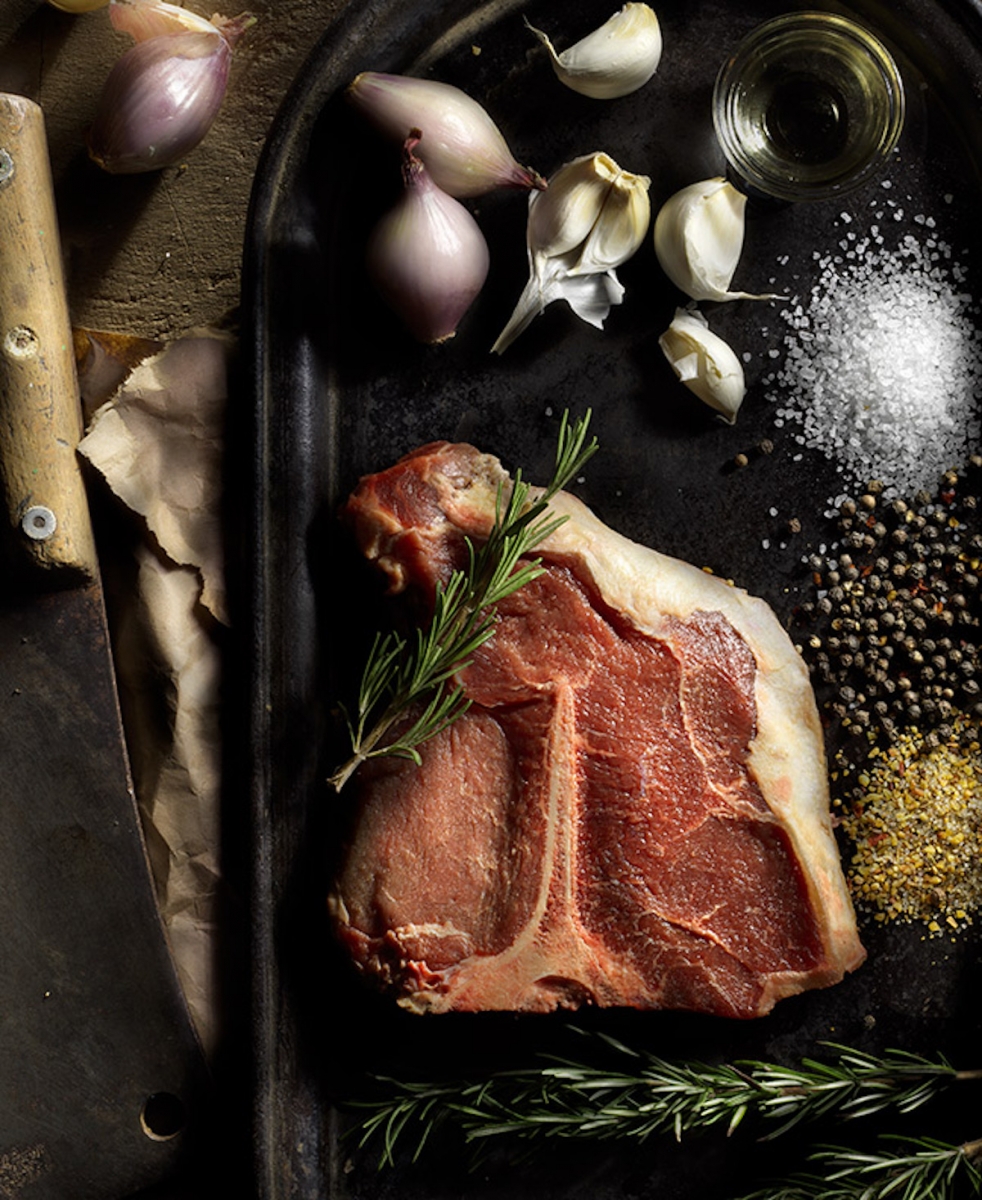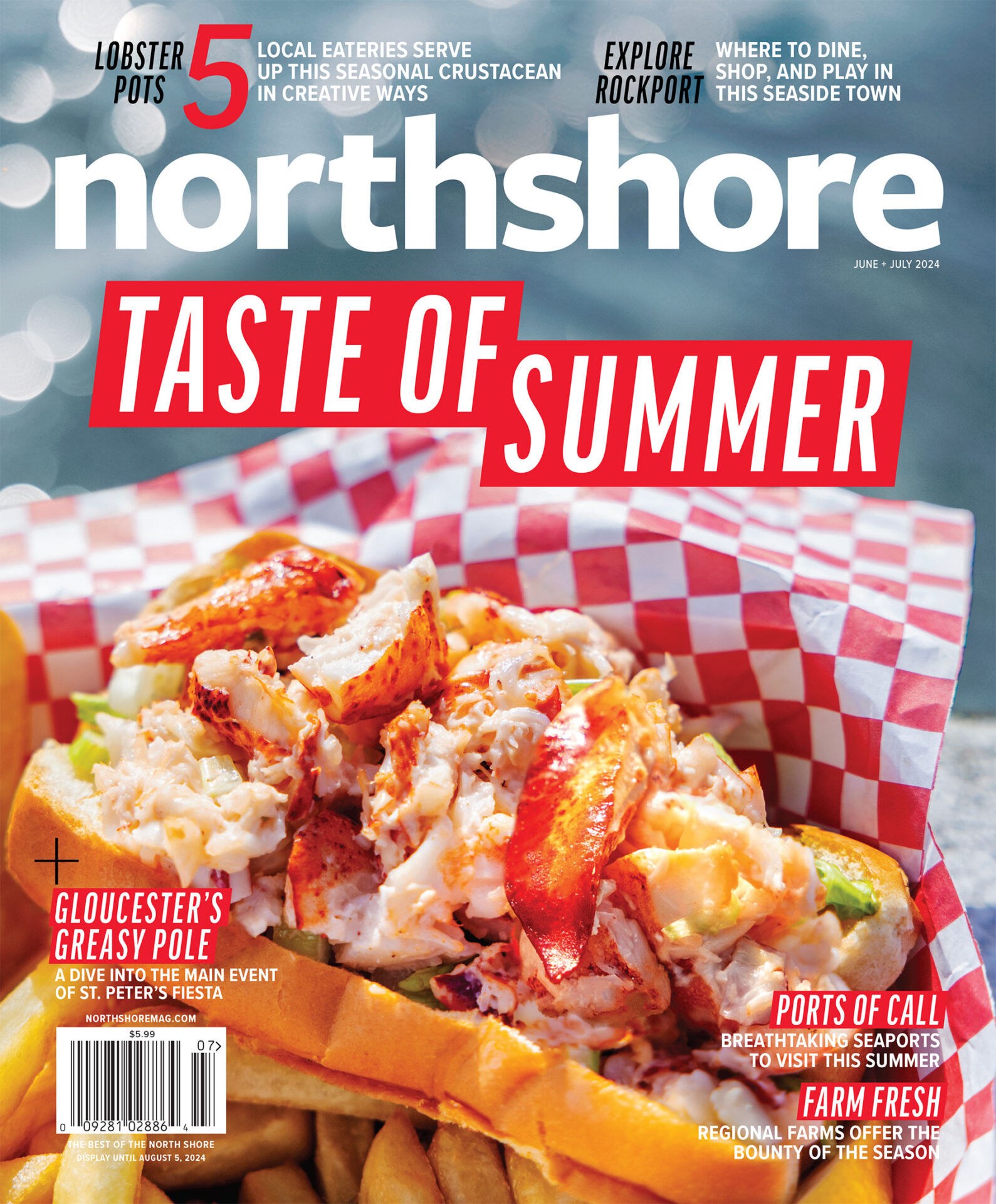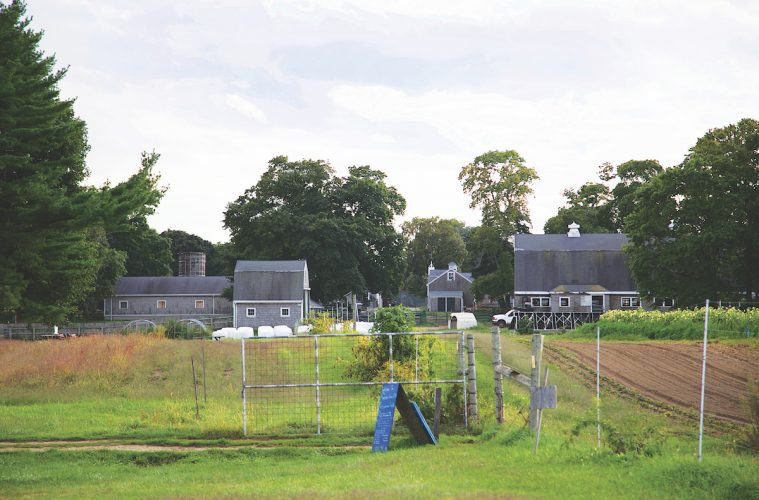Many of us associate The Trustees of Reservations with land conservation and stewardship—for good reason. Since 1890, the nonprofit has protected over 12,000 acres of Massachusetts farmland. Its 116 properties are beloved for their natural beauty and cultural and educational offerings. Today, we have reason to think of it as a local food source, too, as five of their seven working farms now operate a meat CSA (community-supported agriculture) program.
Farmers at Moose Hill Farm in Sharon, Powisset Farm in Dover, Weir River Farm in Hingham, The FARM Institute in Edgartown, and, new this year, Appleton Farms in Ipswich are raising cattle, pigs, chickens, and lambs in a variety of open, natural settings using sustainable practices.

Photo by Scott Goodwin
The idea for the new meat CSA is twofold. First, it diversifies The Trustees’ food distribution outlets. “We decided a CSA model would work very well for us,” says statewide livestock manager Connor Young, noting that the two-year-old program experienced over 100 percent growth in membership in just one year. Second, their sustainable farming practices preserve both agricultural land and natural wildlife habitat. For example, Appleton’s Great Pasture is both grazing ground for cattle and a nesting habitat for birds; to manage the bird habitat, they might hold cattle off a field and leave it fallow from April through July. “We try, as much as possible, to overlap with our ecology department to encourage a sustainable and diverse ecosystem in which we are agriculturally active,” explains director of agricultural programs Cathy Wirth.
CSA memberships support The Trustees’ efforts to preserve the landscape both agriculturally and ecologically. “That integration with ecologists is one of the things that make us particularly unique as an organization,” notes Wirth, who sees the raising and processing of meat as a good fit for The Trustees’ mission. By pasturing a beef herd—a traditional means of working farmland—they eliminate reliance on fossil-fueled tractors and equipment, thereby contributing to the health of their landscape. “People continue to and likely always will choose to eat meat,” she says. “So it should be [raised] in such a way as to reduce the consumption of resources…. We are able to provide a sustainable and humane product.”
Young adds: “All of the meat is raised on land that has been conserved—it goes so far beyond supporting a particular farm. It goes toward ensuring that the farms will operate and be available to all of the communities we serve forever in perpetuity.”
Photo courtesy of The Trustees of Reservations
There was a time when The Trustees’ farms were operated independently. Under Young’s management, they pool resources and products to diversify their offerings to a wider range of customers. “We are able to have a much more robust selection of meats and to specialize a little bit [on each farm],” says Wirth. At Appleton Farms, they are managing a 100 percent grass-fed beef herd (without the use of preventative antibiotics or growth hormones). CSA members pick up their shares at the Farm Store, where they can browse the cheeses, whole milk, and cream line.
By choosing to eat meat “raised on Trustees farms by Trustees farmers,” members also fuel the local food system. “The only way we can have local food in a place like Massachusetts is if people are willing to buy it,” Wirth notes.
Joining the CSA provides a unique opportunity to get to know the places and people responsible for producing your food. “People are looking to learn more about what is in their food. Some of that is accomplished by organic certification and labeling. But there is really no better substitute than talking with the person who raised that food,” says Wirth. Young concurs, adding, “I think that is one of the real benefits of this CSA—we can invite people to come to the working farms to have an immersive experience. We try to educate through practice and on-site learning.”
CSA members can expect a variety of meats and custom cuts of beef, pork, and chicken, and new this year are lamb and an optional egg program not available in stores—in other words, a guaranteed source for something special. Wirth and Young both muse at the many comments they have received from older community members who claim they haven’t had meat so good since they were young and shopped at the local butcher shop. Younger members say they have never had meat like it. “It’s a return to when food was more real and you were closer to where it came from,” says Wirth.
CONTACT: meatcsa@thetrustees.org

